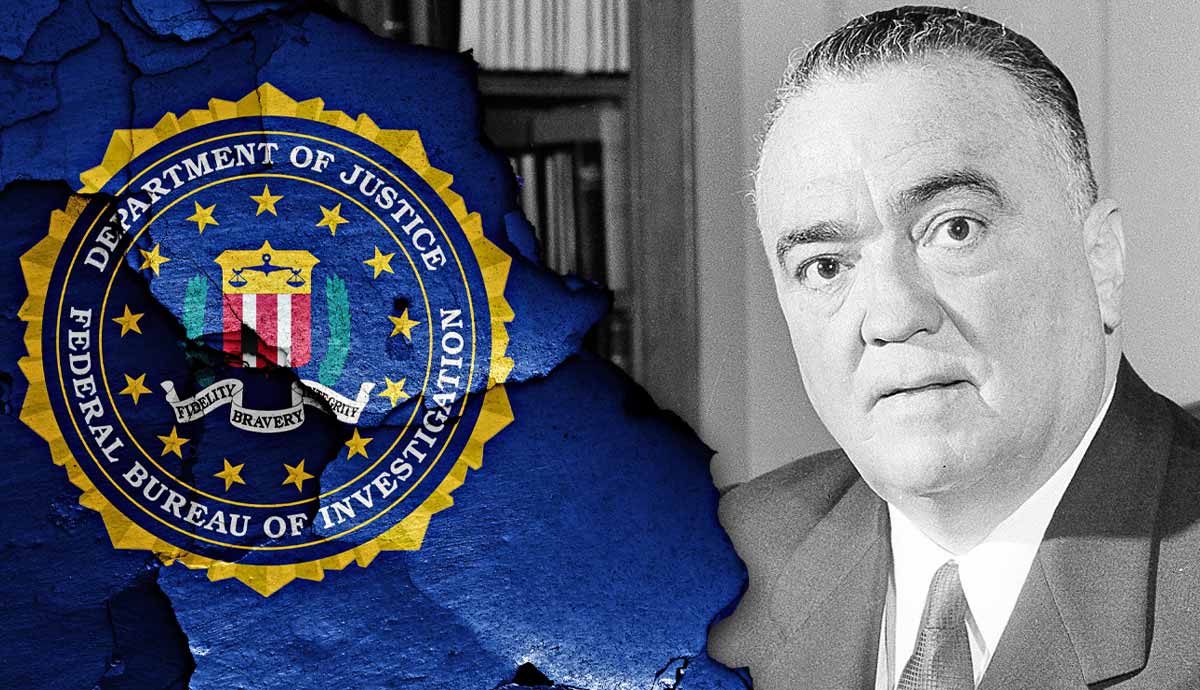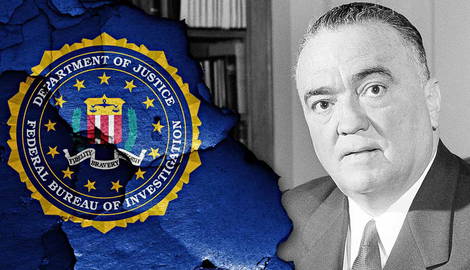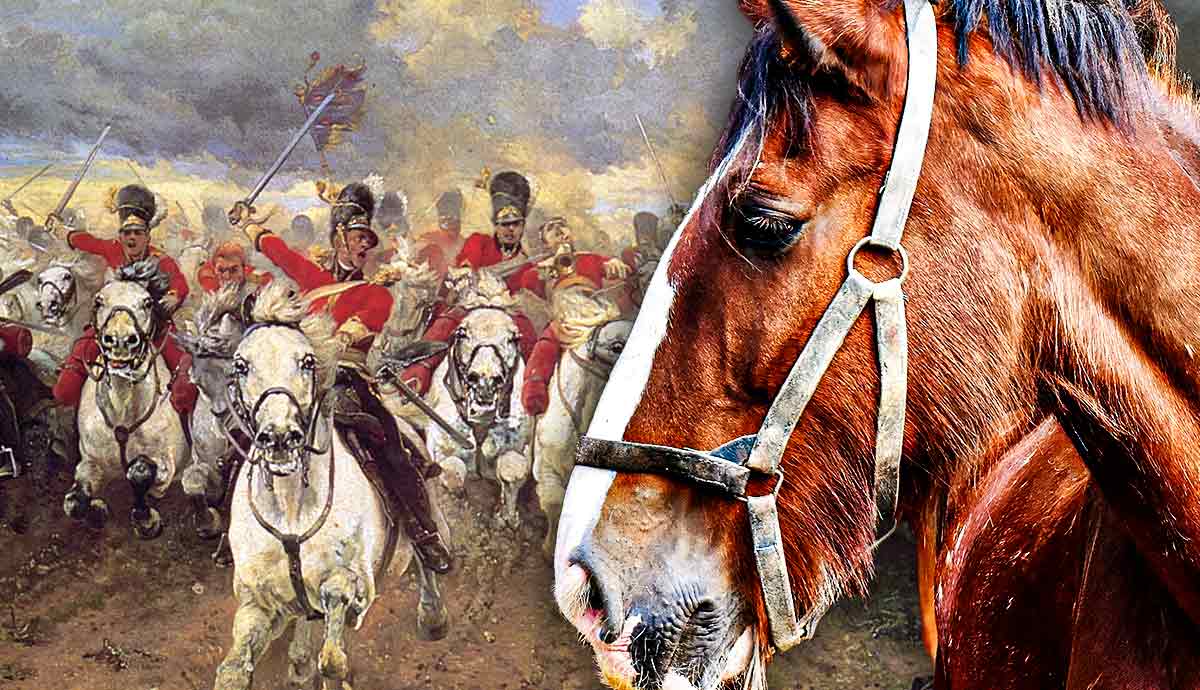
J. Edgar Hoover was Director of the Federal Bureau of Investigation (FBI) for nearly 50 years until his death aged 77. He was instrumental in transforming American policing by expanding the FBI into a modern nationwide crime-fighting agency. Publicly, he portrayed himself as a protector of American democracy. However, behind the scenes, he was responsible for significant abuses of power, from illegal surveillance to wiretapping, and burglary. Hoover was a meticulous operator who exercised near-dictatorial power over the FBI and held sway over politicians and even presidents.
The Making of J. Edgar Hoover

Born and raised in Washington D.C., J. Edgar Hoover began his career as a librarian at the Library of Congress. While studying law at night school, he spent his days in the book processing department, cataloguing books. He was said to be the library’s most able employee. His competence led him to the US Bureau of Investigation’s (BI) General Intelligence Division, where he swiftly rose to the rank of director.
At both the BI and its reincarnation as the FBI in 1935, Hoover’s remarkable ability to classify information rapidly and accurately proved invaluable. Before the advent of computers, he developed a centralized fingerprint file and the FBI Forensic Laboratory as the two key components of his efforts to modernize the Bureau.
During World War II, Hoover joined the “Radical Department” of the US Justice Department, and was tasked with identifying “subversives” for deportation – leftists, many Jews, and Russian and German Nationals – on the pretense of preventing an imminent Bolshevik uprising in the United States.
Hoover’s obsession with “Subversives” further developed when he returned to become Director of the FBI. As the targeting of socialists, trade union leaders, Civil Rights and anti-war activists, artists, and intellectuals accused of being “un-American” picked up pace.
The Birth of the FBI

During the Great Depression, a wave of high-profile bank robberies hit the American Midwest. As banks and bankers were cast as villains of the depression-era, infamous gangsters such as John Dillinger, Baby Face Nelson, and Pretty Boy Floyd courted publicity and enjoyed a degree of public sympathy.
Hoover, realizing his job was on the line, focused intensely on publicly apprehending such outlaws, ultimately receiving the lion’s share of the credit for a spate of successful captures (and shootings). Dillinger, in particular, was an embarrassment to Hoover, given his Robin Hood-like portrayal by the press. He was shot dead by the FBI in 1934.
The interstate nature of the robberies posed an issue for Hoover and his success served as a catalyst for a significant expansion of the BI’s powers, its restructuring, and its renaming as the Federal Bureau of Investigation in 1935.
Double Life

Edgar Hoover attended an all-white school and George Washington University when it was only open to white students. He was a member of the white supremacist Kappa Alpha order, a social fraternity dedicated to the values and culture of the antebellum South. Throughout his career, Hoover forged alliances with Kappa Alpha’s in Congress and hired and promoted them within the FBI.
Despite his notorious homophobia – Hoover passed a dossier of 393 alleged Federal employees that had been arrested for “sexual irregularities” to the White House in 1950 – he enjoyed a long, close relationship with his deputy Clyde Tolson. While the relationship was not acknowledged as sexual, they travelled to work together, dined together daily, and Hoover bequeathed his entire estate to Tolson upon his death. They are buried in Washington just a few yards apart.
COINTELPRO

The true extent of Hoover’s zealous campaign against subversives was exposed in 1971 when anti-war activists burgled top-secret FBI documents from a field office in Philadelphia. The files detailed a wide-ranging program against left-wing groups, anti-war activists, and civil rights campaigners, involving smear campaigns, informants, infiltration, and efforts to break up marriages and get people fired.
This so-called “counter-intelligence program” codenamed COINTELPRO, has since been described as a “dirty tricks” program. An internal FBI memo outlined its objective: to “expose, disrupt, misdirect, discredit, or otherwise neutralize” all activities deemed by Hoover to be “anti-American.”
Using the threat of communism to target a wide range of civil society groups, especially civil rights activists, who were labelled “Black Extremists” or “Black Nationalist Hate Groups,” Hoover oversaw a campaign of state-sponsored terror between 1956 and 1971 against all domestic organizations he deemed subversive.
The Most Powerful Man in the United States?

Throughout his career, concerns were raised about the immense power amassed by J. Edgar Hoover. He served under eight US Presidents and allegedly kept secret files on all of them.
After the Korean War began in 1950, Hoover submitted a plan to detain 12,000 Americans suspected of disloyalty. President Harry Truman rejected the proposal and also shot down Hoover’s plan for a “World-Wide Intelligence Service,” likening it to the creation of an American “Gestapo.” Hoover was furious and subsequently withheld future decided intelligence intercepts from the President.
Both Harry Truman and John F. Kennedy claimed that the political costs to them of firing Hoover were too great. In 1971 Richard Nixon was recorded saying that he feared Hoover’s reprisals against him if he were to do so. Following Hover’s death, Congress swiftly passed legislation to limit the tenure of future FBI Directors to ten years.










